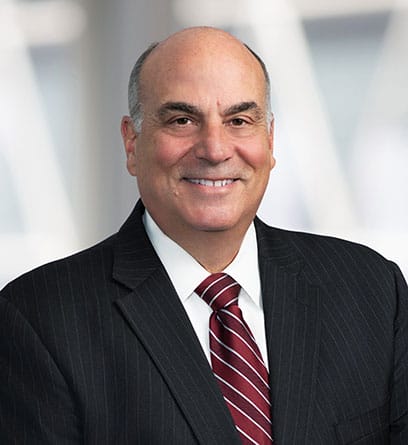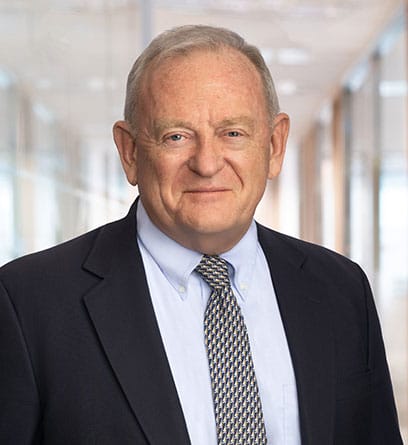Litigation can be unpredictable, and a robust and effective appellate strategy and capability can be essential to maximizing the chances of success. That process begins well before the first appellate brief is filed, with careful planning and preparation from the outset.
With decades of experience in federal and state appellate courts, our team offers clients strategic, results-driven representation at every stage of the litigation process. Led by former appellate judges Hon. Booker T. Shaw and Hon. Douglas S. Lang, our skilled appellate attorneys collaborate closely with trial teams to provide strategic guidance. From error preservation and jury instructions to Supreme Court advocacy, we address every aspect of appellate litigation with precision. We advise on court systems, judges, venue selection, transfers, and removals; draft post-verdict motions; and provide counsel on the advisability of pursuing an appeal.
At the appeal stage, our attorneys’ exceptional oral and written advocacy skills come to the forefront as we prepare persuasive appellate briefs and represent clients at oral argument. Thompson Coburn also is uniquely equipped to represent clients before the nation’s highest court. Our attorneys are well-versed in navigating the intricacies of Supreme Court procedures, effectively presenting cases, and understanding the Court’s precedents and jurisprudence. Our Washington, D.C., presence ensures we stay informed on judicial trends and developments in appellate law at both state and federal levels.
flexing our experience in administrative litigation
Our team is highly skilled in handling judicial reviews of administrative agency decisions. We represent clients in challenges to agency actions, regulatory disputes, enforcement proceedings, and adjudications by federal and state administrative bodies. Whether addressing statutory interpretation issues, procedural errors, or agency overreach, our appellate lawyers craft compelling arguments to defend our clients’ interests.
Supreme Court experience
Thompson Coburn’s attorneys have a proven track record of success advocating for clients on issues of national significance before the Supreme Court of the United States. We have been at the forefront of landmark decisions. Read more about our Supreme Court experience here.
experience
Federal and State Appellate Courts
- Successfully appealed a verdict against a U.S. liquor importer in Major Brands v. Southern Glazers/Jagermeister. The U.S. Court of Appeals for the Eighth Circuit overturned a prior jury verdict that had ordered the importer to pay a distributor nearly $12 million after terminating their deal. The appeals court found the jury was misinstructed on an element of the Missouri Franchise Act.
- Successfully represented a financial services company in its appeal of a consumer class action counterclaim seeking damages under the Uniform Commercial Code (UCC) in Americredit (GM Financial) v. Bell. The Missouri Court of Appeals, Eastern District found that the trial court erred in granting summary judgment in the borrower’s favor on both her consumer class action counterclaim and GM Financial’s deficiency claim.
- Secured a win in the Missouri Court of Appeals on behalf of a tool manufacturer in a product liability case, resulting in the reversal of a $7.7 million jury verdict. The court agreed that opposing counsel’s references to our client’s financial status as a “billion-dollar company” during the trial were in violation of a court order and it therefore reversed the trial court’s jury verdict and remanded the case for a new trial.
- Obtained a victory defending Monsanto in an appeal that alleged the company’s Roundup product caused non-Hodgkin’s lymphoma. This was only the second Roundup trial out of thousands of claims filed in St. Louis County. The Missouri Court of Appeals, Eastern District, affirmed the verdict in Monsanto’s favor, finding that a lower court did not err in its decisions to exclude a witness who was not a qualified expert and in not granting a mistrial based on a comment during opening statements.
- Secured a Missouri Supreme Court reversal in a UCC post-sale notice case. Missouri creditors would likely have faced significant class action exposure if the lower court decisions had been affirmed.
- Represented a retirement system in Sihnhold v. Missouri State Employees Retirement System, which determined a retired administrative law judge was not entitled to a retroactive increase in retirement benefits.
- Represented an employee in Scanwell Freight Express STL, Inc. v. Chan, in which an error in jury instruction on an employee’s duty of loyalty when leaving for new employment required a new trial on the claim against the employee. The Missouri Supreme Court later adopted new approved instruction in accordance with this opinion.
- Represented a railroad in Smith v. Illinois Central Railroad Co., which concluded that the certification of class of persons and businesses allegedly exposed to toxic substances after a train derailment was not appropriate because common issues did not predominate.
Major Supreme Court Cases
- Franchise Tax Board v. Hyatt, Docket No. 14-1175 (2015): This case asked the Court to overrule its 1979 sovereign immunity decision, Nevada v. Hall, holding that 11th Amendment state sovereign immunity does not preclude a private suit against a state filed in the courts of another state. Because of the similarity of the issues, the court’s decision in Fed. Mar. Comm’n v. S.C. State Ports Authority, argued by Thompson Coburn partner Warren Dean, figures prominently in the resolution of the question whether Hall should be overruled. Dean, with support from partners Jon Benner and Katie Kraft, filed an amicus brief in Hyatt on behalf of the South Carolina Ports Authority, in support of reversal of Hall. The brief addressed the importance of sovereign immunity to investment in transportation infrastructure like ports.
- Northwest v. Ginsberg, Docket No. 12-462 (2014): On behalf of the International Air Transport Association (IATA), we filed an amicus brief in support of Northwest. The case involved federal pre-emption of implied contractual covenants under state law. Siding with petitioner Northwest and the amici supporting petitioner, the Court unanimously reversed the judgment of the Ninth Circuit, finding that the federal law pre-empted a state law claim for breach of an implied covenant that seeks to enlarge the contractual obligations voluntarily adopted by the contracting parties.
- Bowman v. Monsanto Co., Docket No. 11-796 (2013): This case concerned patent rights after the first sale of self-replicating technology, which had broad implications for innovation across a broad range of industries. We won summary judgment for Monsanto in the U.S. District Court for the Southern District of Indiana, which concluded Bowman had no right to make copies of Monsanto’s patented technology. The U.S. Court of Appeals for the Federal Circuit upheld that; the Supreme Court agreed to review the case and ruled unanimously for Monsanto, affirming the Federal Circuit’s ruling.
- Sawyer v. Iqbal, 556 U.S. 1256 (2009) decided by Ashcroft v. Iqbal, 556 U.S. 662 (2009): Represented a former director of the Federal Bureau of Prisons who had been sued, along with other federal officials, by a Pakistani citizen alleging tortious conduct arising from his detention after the 9/11 attacks. The decisional question addressed the degree of specificity that a civil complaint must achieve to survive a motion to dismiss filed under the Federal Rules of Civil Procedure. The Court held that a complaint must be facially non-conclusory, i.e., based on allegations of fact that are believable under the circumstances, to survive motion to dismiss.
- Exxon Shipping Co. v. Baker, 554 U.S. 471 (2008): Represented amici international shipowner groups in supporting a challenge to the award of punitive damages arising from the EXXON VALDEZ oil spill that vastly exceeded actual damages. The Court held that punitive damages in maritime cases could not exceed amounts awarded as actual damages.
- District of Columbia v. Heller, 554 U.S. 570 (2008): In support of the prevailing party in this landmark Second Amendment gun case, Thompson Coburn partners prepared an amicus brief that was cited by the U.S. Supreme Court in the related case of McDonald v. City of Chicago, 561 U.S. 742 (2010).
- Norfolk Southern Railway Co. v. Sorrell, 549 U.S. 158 (2007): The Court held that Missouri courts’ interpretation and application of a federal statute was contrary to federal law, as interpreted by federal courts. The Court’s decision effected a change in Missouri mandatory jury instructions that had been in force for decades.
- Federal Maritime Commission v. South Carolina State Ports Authority, 535 U.S. 743 (2002): In this landmark Constitutional case, the Court held that states and their instrumentalities are entitled to sovereign immunity in proceedings before federal administrative tribunals. The decision, one of the most significant in what may be the oldest line of Supreme Court cases, affirms the dual sovereignty inherent in our federal system of government.
- Intertanko v. Locke, 529 U.S. 89 (2000): The Court held that federal law preempts state of Washington environmental and safety regulations related to vessel operations in state waters.
- El Al v. Tseng, 525 U.S. 155 (1999): Successfully represented the U.S. airline industry as amicus and worked with the Solicitor General to argue that the international treaty rules of the Warsaw Convention exclusively occupied the field relating to the compensation of airline passengers and shippers.
We have a proven track record of success in landmark appellate decisions impacting a wide range of industries.
We provide proactive planning to preserve errors and optimize appeal opportunities, positioning clients for the best chance of success on appeal.
Leadership by two former appellate judges offers unmatched legal insights.
We leverage our deep understanding of regulatory frameworks and administrative law to achieve favorable outcomes for our clients in challenges to administrative agency decisions.
































